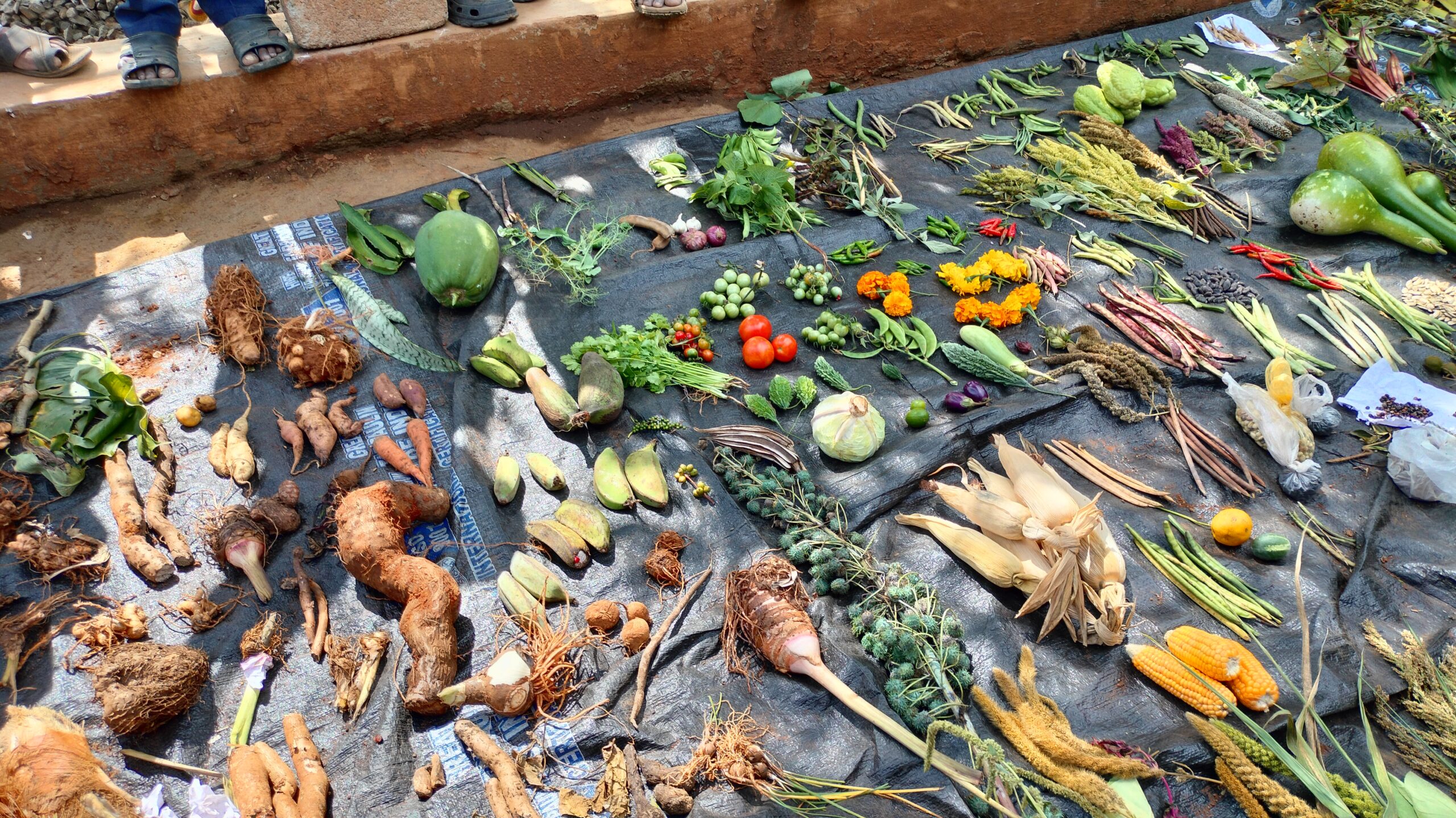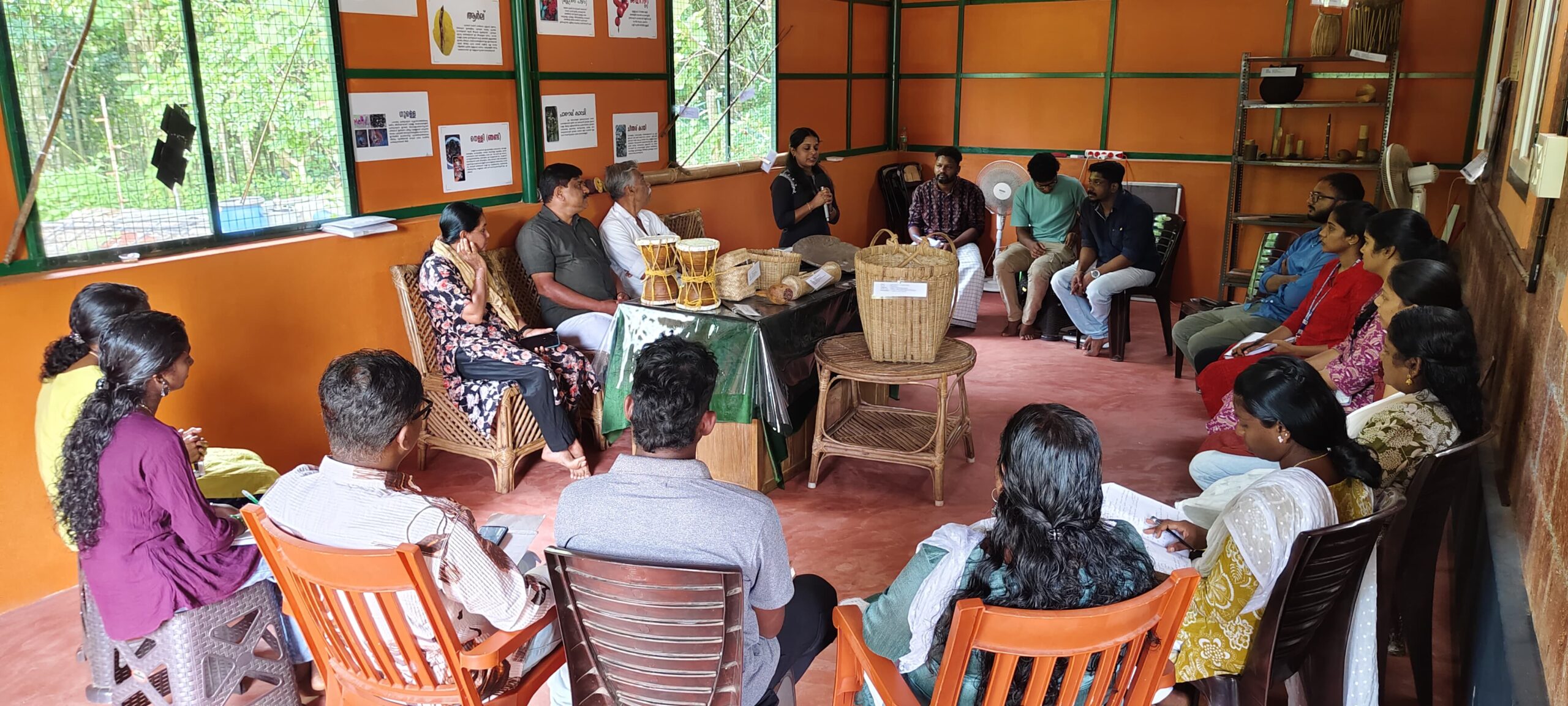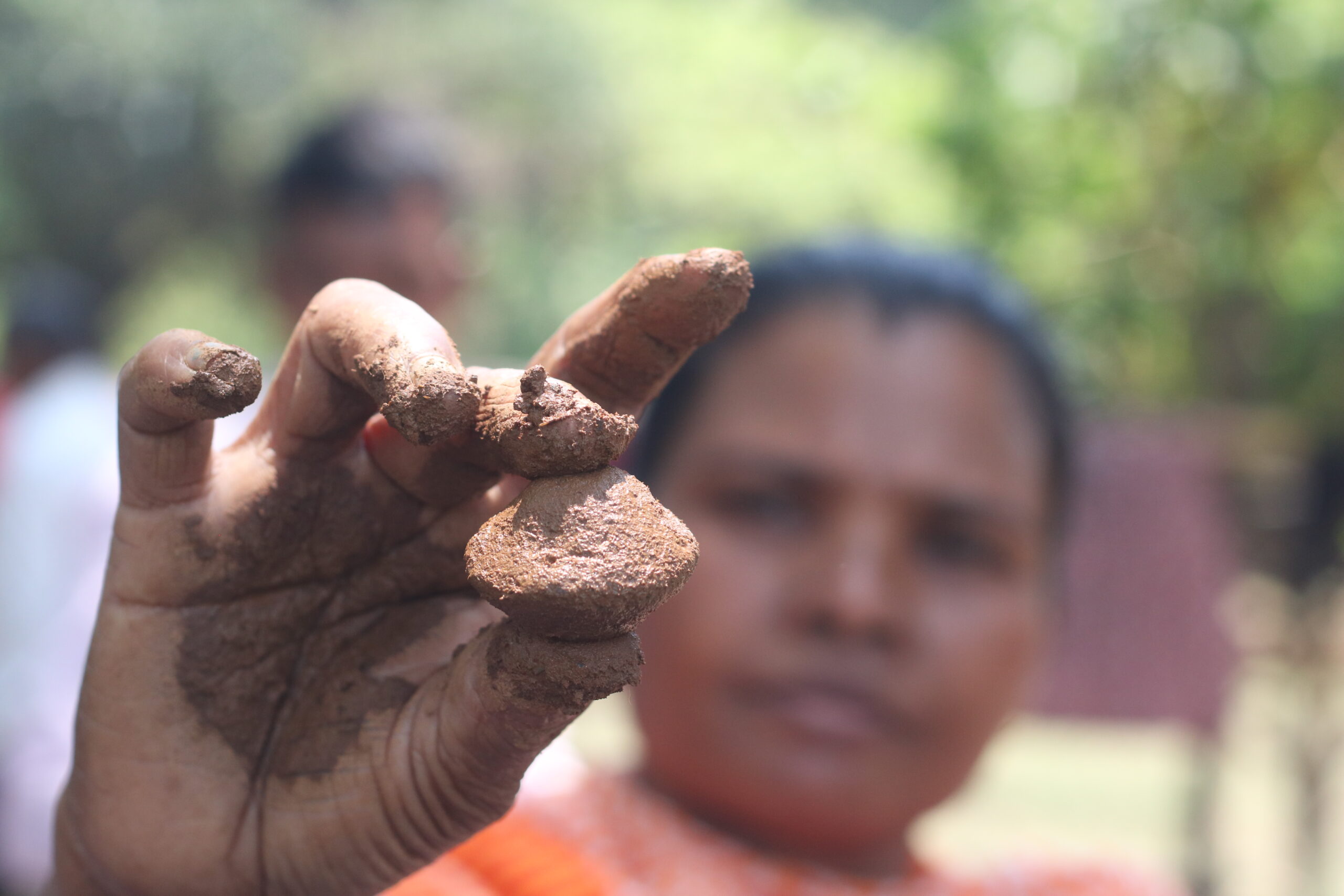By Ranjani Prasad and Faisal Rehman, Programme Coordinators, People and Nature Collective
Paderu (Alluri Sitarama Raju District) & Kotturu (Srikakulam District), Andhra Pradesh
This event was organised by Keystone Foundation, with support from Rosa Luxemburg Stiftung and in collaboration with Sanjeevini Environment Protection Society and Velugu Association. These are NGOs that have worked extensively in the Eastern Ghats for nearly 3 decades with Indigenous and vulnerable communities on rights, livelihood issues, and the preservation of rich seed and crop diversity.
As part of this meeting, we had discussions on seed conservation experiences, especially in conserving local varieties that are grown by indigenous farmers of the region.
The meeting was held at Paderu, in Sanjeevini BioDiversity Block, Killoguda village, near Araku, Alluri Sitarama Raju District, AP. The inauguration session included a ceremonial lamp lighting around the altar of seasonal seed varieties and honouring the late Ammaji. Ammaji was a phenomenal leader and advocate of natural farming and seed diversity in this region.
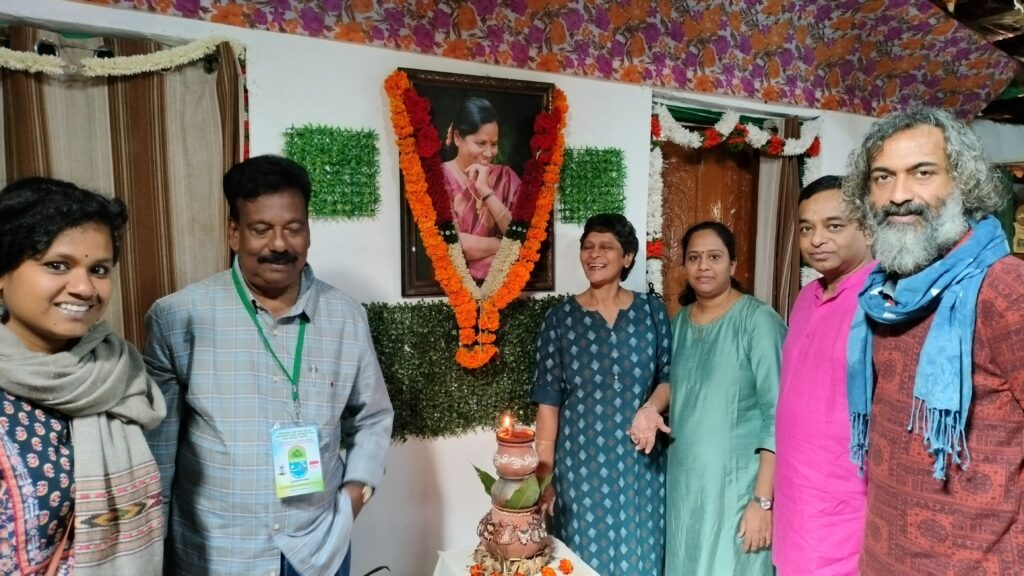
Agricultural officers from the mandal, panchayat leaders, professors from Acharya N. G. Ranga Agricultural University (ANGRAU) and representatives of the Rythu Sadhikara Samstha (RYSS), Andhra Pradesh Community Managed Natural Farming (APCNF) held discussions with farmer groups on the key issues related to growing food, saving seeds and ensuring food sovereignty. The discussions revolved around the importance of protecting native varieties of millets, vegetables, tubers, and other crops through creating diversity blocks and developing climate resilient and drought resilient crops. There were also discussions on how the rights of seed savers ensure seed sovereignty for the entire community and region, including registering of seed varieties, conducting research and documentation on high yielding varieties and supporting farmer initiatives in the region.
Day 1
Day 1 was attended by nearly 95 participants, from various PVTG communities of the Eastern Ghats, including Konda Dora, Mukhadora, Bhagata, Gadaba, Porangi Porja, Kammara, Duliya, Khonds, Kotiya, Saura and Jatapu. All of them practise natural farming and traditional agriculture but also depend on forest produce for their diet diversity. There was a vibrant display of seeds and traditional varieties in 10 stalls at the venue, showcasing diverse millets, vegetables, tuber and uncultivated food varieties. Over the years, Sanjeevani NGO has documented many seed varieties especially related to millets, cereals, beans, tubers, etc.
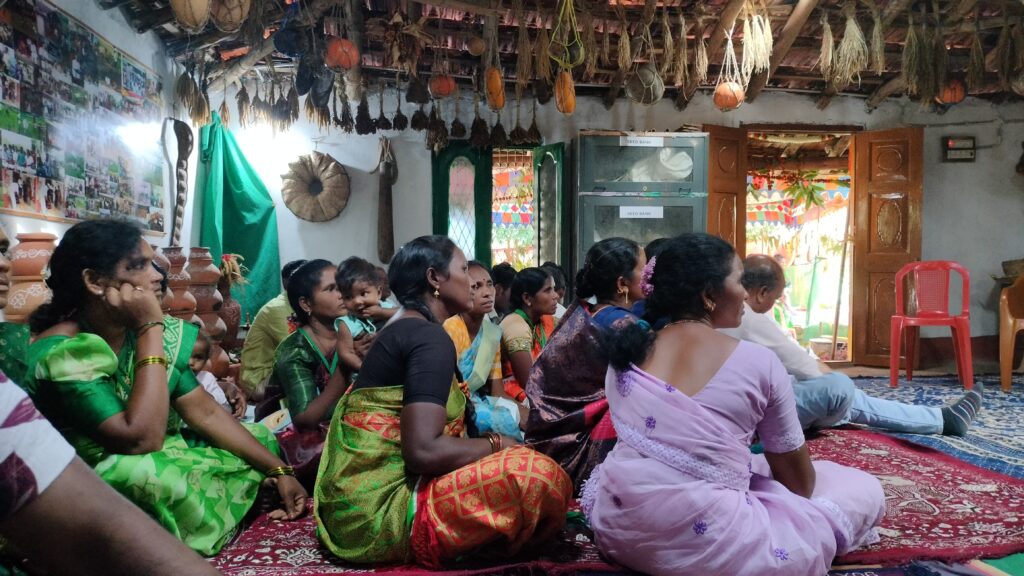
Day 2
On Day 2, the participants visited Demuduvalasa and Gondiguda villages in the Sovva valley, where we were introduced to 2 diversity blocks. This region is known for its indigenous crop diversity and natural farming practices that have enabled 50+ native rice varieties, 100+ tuber varieties and medicinal plants and many other vegetables, cereals and food crops that are locally grown through innovative techniques round the year. There are nearly 4 crop cycles in the year, sometimes even with no water or irrigation facilities. During the visit, we had discussions on how this work was made possible through training, encouraging seed savers, farmer support and development of diversity blocks through Sanjeevani NGO and its associated FPOs and support from the AP government.
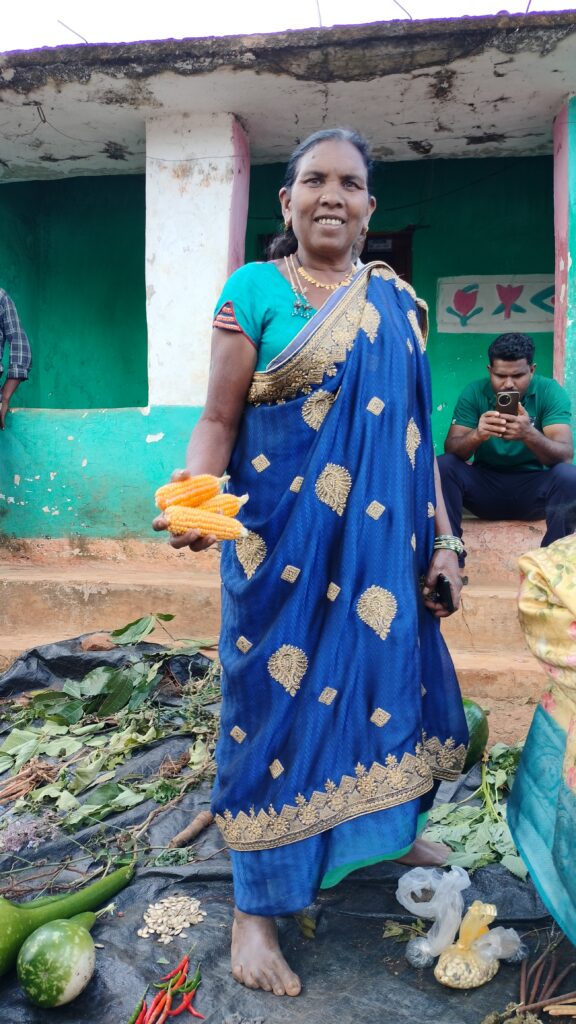
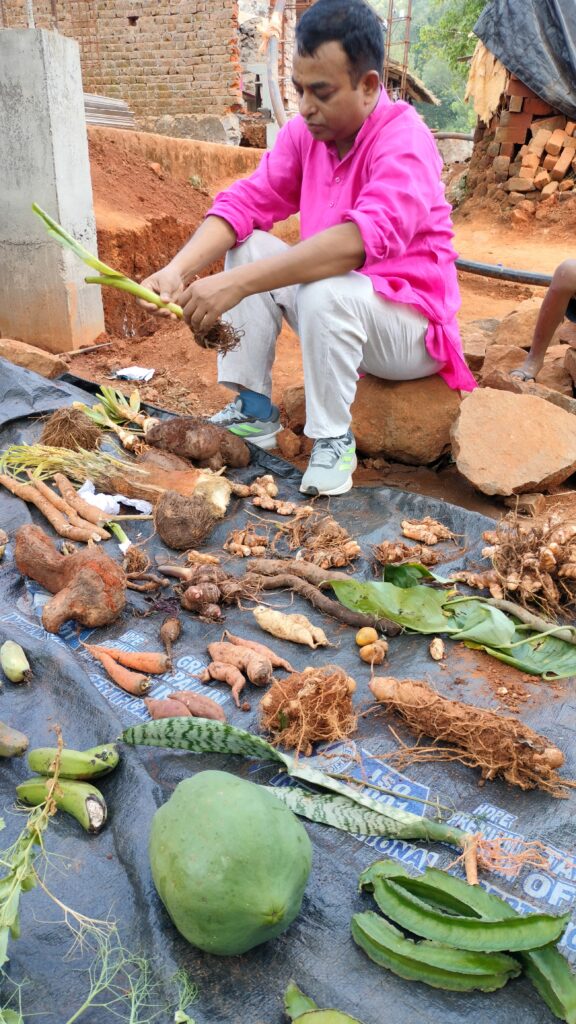
Day 3
On Day 3, a smaller part of the group travelled to Kotturu in Srikakulam district, to engage with the work that Velugu Association is conducting in the Saura and Jatapu communities’ regions. We had field visits to the Dwarabanda and Addangi village, where a group of Saura community members discussed various issues related to land, forest based livelihoods and associated challenges. The discussions over the day also revolved around how slowly communities are losing their traditional grain varieties, but the presence of FPOs through Velugu Association and government programmes gives a boost to agriculture of high yield crops such as rice, cashew, mango, custard apples, etc. We also discussed how land security is directly linked to food security. In addition to this, we talked about the contemporary challenges of sustaining agricultural practices in remote areas, especially amidst a breakdown in cultural ethos and high dependence on the public distribution systems.
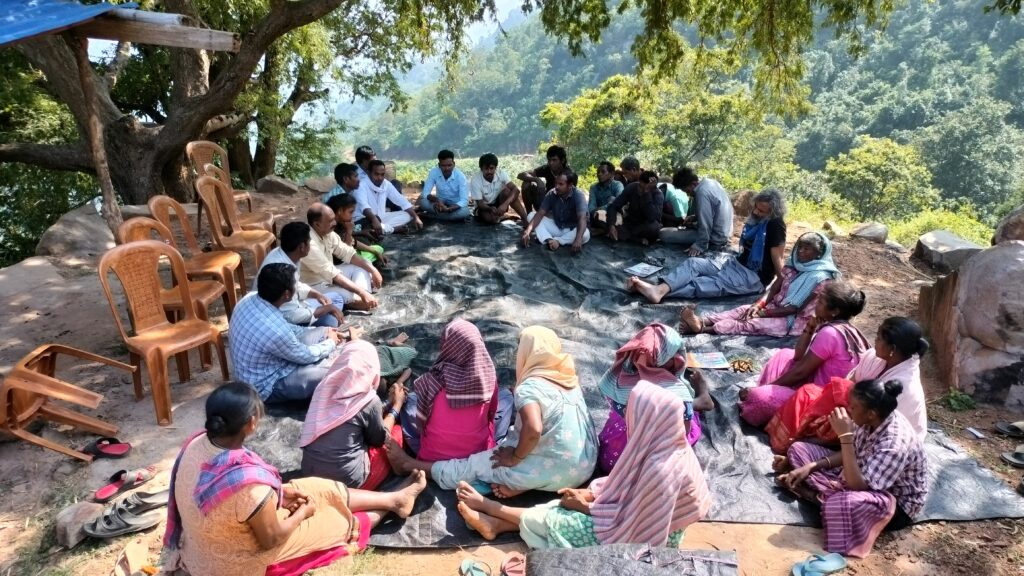
The three day meeting was a really wonderful opportunity to learn from the grassroots movements related to land, labour and agriculture in the Eastern Ghats region.
Thematic Focus
Community Food Systems, Land Resources of Communities, Access to Common Lands & Forests, Food Grower’s Rights, Food Sovereignty, Seed Sovereignty, Seed Savers, Adivasi Food Systems, Access to Collect Food & NTFPs, Indigenous-Adivasi Rights, Farmer’s & Food Producer’s Rights.

